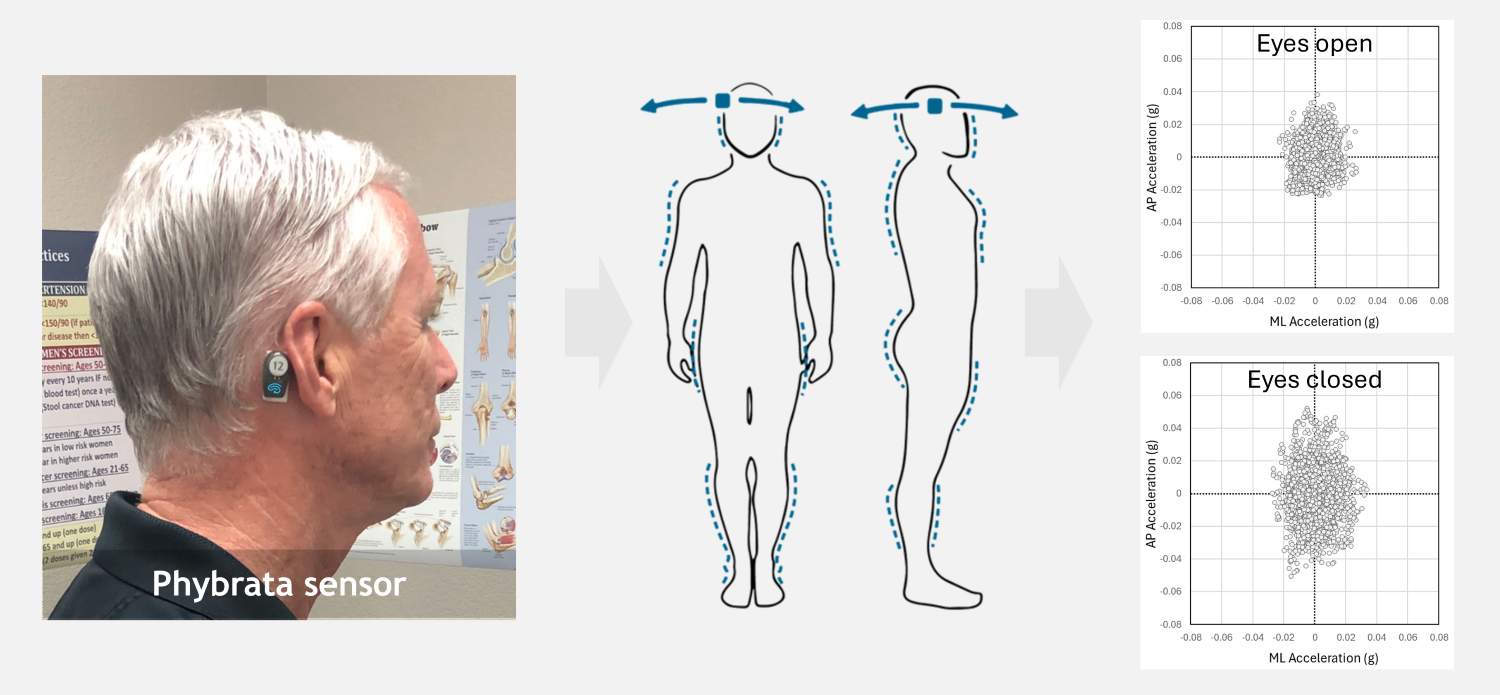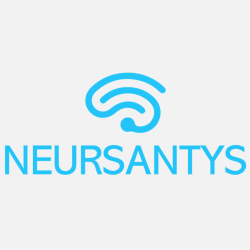
Neursantys, a pioneer in bioelectronic medicine, has published results from a pilot study validating a new class of digital biomarkers that quantify age-related balance and mobility decline, a key driver of reduced healthspan and increased healthcare costs in aging populations.
The study, “Phybrata Digital Biomarkers of Age-Related Balance Impairments, Sensory Reweighting, and Intrinsic Fall Risk”, published in the journal Medical Devices: Evidence and Research, recruited over 500 participants aged 51 to 98 years from four senior communities in the San Francisco Bay Area. Using a head-mounted wearable physiological vibration acceleration (phybrata) sensor, the study captured involuntary micro-movements during simple two-minute balance and gait tests. Machine learning models analyzed the phybrata sensor data to assess neurosensory and motor function impairments and resulting fall risk profiles, insights that are traditionally inaccessible outside of advanced clinical settings. Trained interns, therapists, and caregivers conducted the assessments via a mobile app, correlating results with participants' health histories. The findings demonstrate that phybrata biomarkers can effectively track progressive changes in functional mobility and sensory integration that accompany neuromotor decline—enabling widely accessible preventive screening to promote healthy neuromotor aging and extend the human healthspan.
“Compared to molecular and omic biomarkers used to quantify the accumulation of age-related molecular damage, phybrata digital biomarkers contribute new capabilities for continuous longitudinal measurements of more complex physiological systems such as balance,” said Neursantys CEO and lead author John Ralston. “Phybrata biomarkers directly quantify the decline in functional mobility that is one of aging’s most visible effects, and have enabled the development of a new class of bioelectronic device and treatment protocol that has been shown to deliver long-lasting neuroplastic restoration of balance and mobility across a wide age range.”
“From a near-term operational standpoint, Neursantys is a game-changer,” said Scott Stanley, President of Caring Hands Caregivers and study co-author. “Care staff with minimal training can now deliver clinical-grade functional assessments at scale, without clinical infrastructure—opening the door to routine preventive screening, restorative treatments, and longitudinal monitoring across diverse care settings, helping older adults to continue living more actively, independently, and productively.”
Neursantys is actively expanding pilots and seeking strategic partnerships to bring its technology to market as the leader in balance and mobility. The company’s platform has the potential to redefine aging diagnostics and preventative care models, extending healthy lifespan and reducing healthcare system burden.
With operations in Menlo Park, CA, Calgary, AB, and Toronto, ON, Neursantys is a pioneer in the development and application of wearable devices and bioelectronic medicine to help our aging populations continue living actively, independently, and productively by delivering widely accessible assessments and bioelectronic restoration of the body’s aging balance system. Neursantys combines innovations in balance testing and restorative bioelectronic treatments, along with delivery channel partnerships with at-home care providers and physical therapists, to provide a full-stack solution for senior living communities and aging in place populations at home.
For more information, visit https://neursantys.com.


